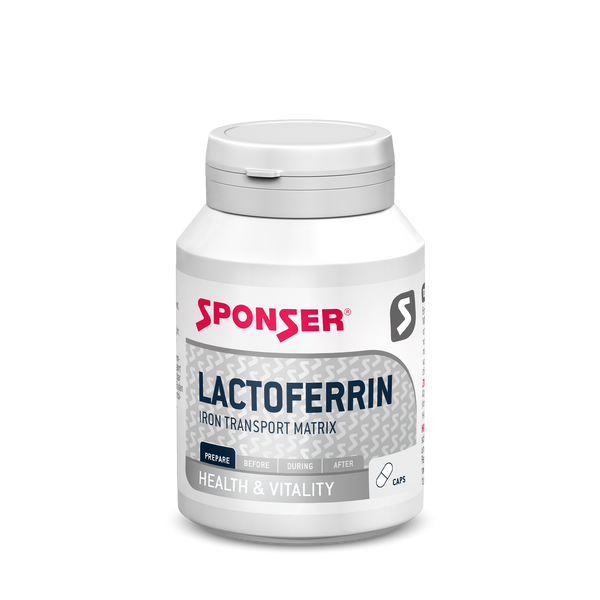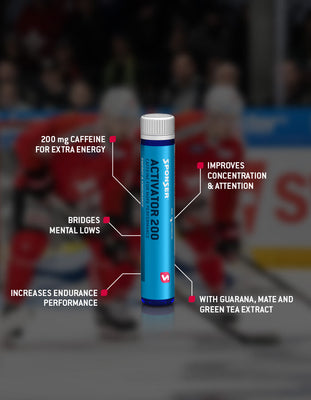
Performance enhancement with lactoferrin
Besides magnesium it is iron, which is considered the most important mineral by athletes. Furthermore, because of its well-known function in oxygen transport an as a blood component it seems plausible to think of iron deficiency in case of premature tiredness and performance decline. Iron losses due to menstruation is a common reason for female athletes to take iron supplements or even infusions. Apart from the fact that the infusions of more than 50 ml volume are considered doping, iron supplementation may cause side effects such as constipation; but also its interaction with other nutrients can be detrimental with high iron intake.
Lactoferrin as a transport protein
Taking lactoferrin may offer a solution to the dilemma of «recurrent iron deficiency versus side effects of high iron supplementation». Lactoferrin is a transport protein that binds iron and is found in high concentrations in mammalian milk. In addition to its iron binding and transport function, it also has immunomodulatory, anti-inflammatory and antioxidant effects. Since 2012, lactoferrin has been listed in the EU as a novel food ingredient and been used in various product categories, mostly against the background of its positive effect on the immune system. Various studies give lactoferrin very good marks as an iron transporter: blood levels such as of haemoglobin, serum iron and serum ferritin as well as the number of red blood cells increased significantly while at the same time being better tolerance to supplementation was observed (Rezk 2015, Paesano 2010, Nappi 2009).
Performance enhancement with lactoferrin
A study dedicated to female long-distance runners found a preventive effect of lactoferrin on the common anaemia in this population group (Koikawa 2008). In addition, the study demonstrated performance improvements after eight weeks of supplementation with lactoferrin and (low-dose) iron as follows:
• lower lactate accumulation
• more efficient removal of lactic acid compared to iron alone
• improved energy metabolism due to better blood iron level
Recommendation
In summary, iron deficiency and concomitant performance decrease, which is common in sports and particularly in women, can be treated more efficient and with fewer side effects by supplemental lactoferrin, also in combination with low-dosed iron and vitamin C. Finally, such a supplementation can also be recommended as a preventive, long-term measure. SPONSER® offers
LACTOFERRIN in easy-to-take capsules. One daily ration of 2 capsules delivers 200 mg of lactoferrin, 14 mg iron (100% NRV) along with 48 mg of vitamin C (60% NRV). Click here to download the full article as a PDF with further studies and graphics.
Related articles
on
» iron
on
» performance optimisation
Literature
Koikawa et al. (2008): Preventive effect of lactoferrin intake on anemia in female long distance runners. Biosci Biotechnol Biochem, 72(4),931-5.
Nappi et al. (2009): Efficacy and tolerability of oral bovine lactoferrin compared to ferrous sulfate in pregnant women with iron deficiency anemia: a prospective controlled randomized study. Acta Obstet Gynecol Scand, 88(9):1031-5.
Paesano et al. (2010): Lactoferrin efficacy versus ferrous sulfate in curing iron deficiency and iron deficiency anemia in pregnant women. Biometals, 23:411-7.
Rezk et al. (2015): Oral lactoferrin versus ferrous sulphate and ferrous fumerate for the treatment of iron deficiency anemia during pregnancy. J Adv Nutr Human Metabol, 2016;29(9):1387-90.
Author: Remo Jutzeler
Head R&D SPONSER SPORT FOOD
Ing. Applied Food Sciences UAS
MAS Nutrition & Health ETHZ



















